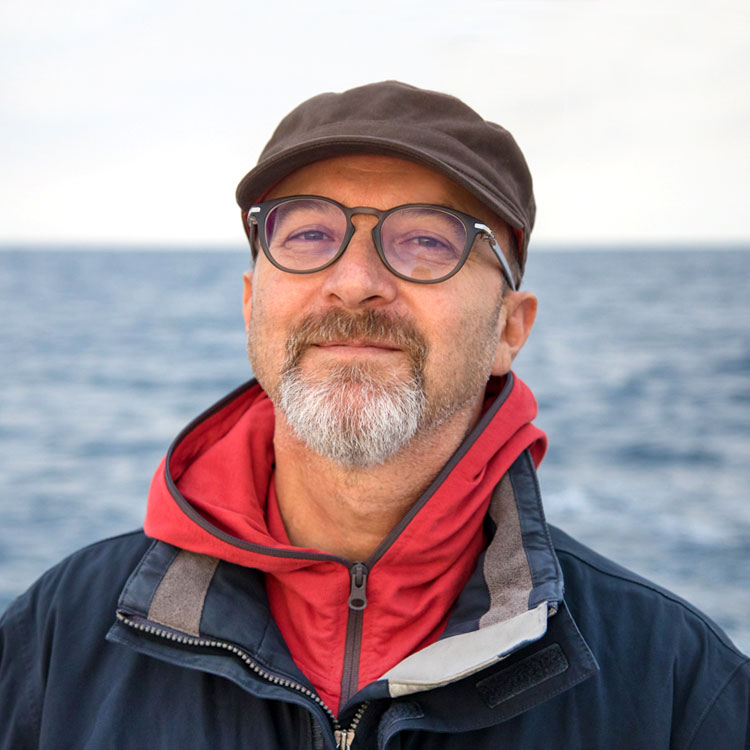
Giovanni Bearzi, Ph.D.
DBC, Adriatic Sea
Giovanni Bearzi holds a Laurea in Biological Sciences at the University of Padua, Italy, and a Ph.D. in Zoology at the University of Basel, Switzerland.
Born in Venice, Italy, he has been conducting dolphin research since 1986, particularly in the Adriatic and Ionian Seas. He founded and directed for a decade a dolphin research and conservation programme in Croatia, which was awarded the Henry Ford European Conservation Award as best European project. In 2001, Giovanni Bearzi was named a Pew Fellow in Marine Conservation, the world's pre-eminent award in that field.
Former President of the Tethys Research Institute, and Lecturer of Cetacean Conservation at the Faculty of Environmental Sciences, University of Venice, Italy. Between 2011 and 2017 he was a Visiting Senior Scientist and an Associate Research Scientist with the Institute of Marine Life Sciences, Texas A&M University, USA. Giovanni Bearzi has also been a Member of the IUCN Cetacean Specialist Group since 2000. He is also an Associate with the Institute of Marine Sciences, National Research Council, Italy, and the Founder and President of Dolphin Biology and Conservation (since 2011). He is the author of about 200 scientific contributions, action plans for cetaceans, IUCN Red List assessments and other work intended to support marine conservation action.
His collaboration with OceanCare started in 2001, and since 2014 he is a Research Associate.


